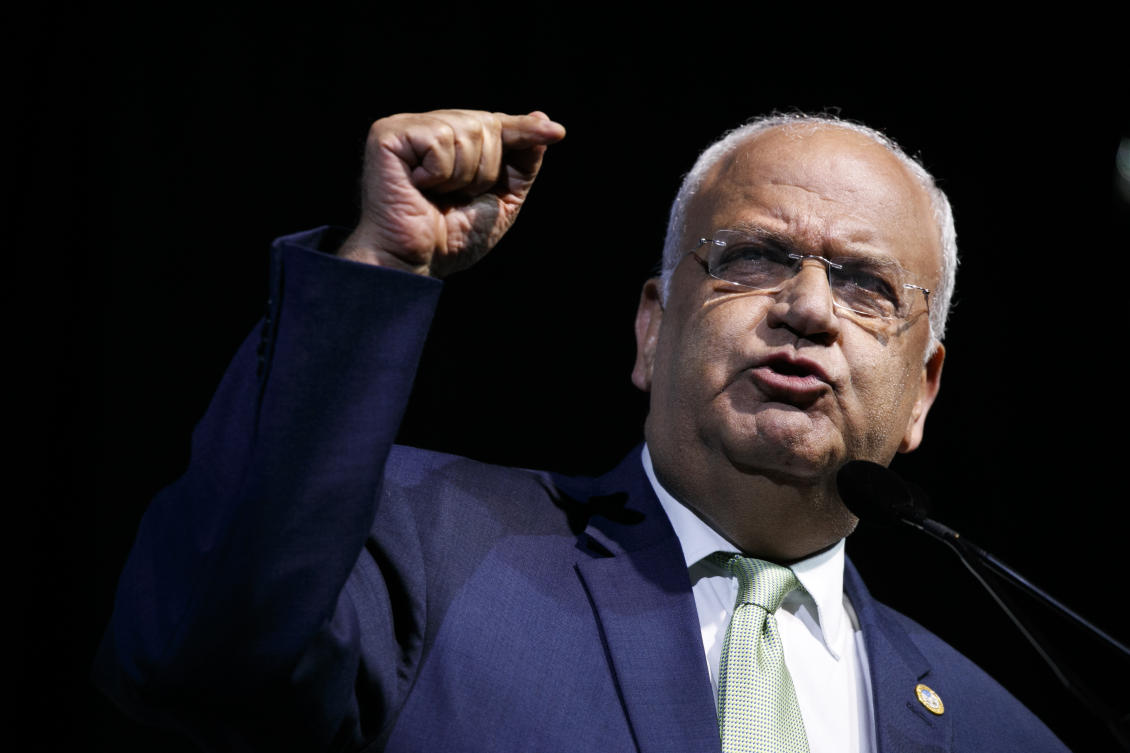JERUSALEM: Israel started “cautiously” emerging from a second coronavirus lockdown Sunday after a month of tight restrictions, reopening preschools, kindergartens, beaches and national parks, with numbers of new infections falling.
Public radio said about a million young children were set to return to kindergartens and other facilities on Sunday.
Talia Zinkin, 40, said she “hesitated a lot” before sending her two-year-old son to daycare.
“But I felt he would enjoy being with other children,” she told AFP. “We have to try to live normally.”
Zinkin, playing with her younger child in a Jerusalem park, said it had been full of children last week — but had emptied with the reopening of kindergartens.
Businesses not involving face-to-face contact with the public were allowed back to work, and a contentious ban on individuals moving more than 1 km from their homes was lifted.
That rule had sparked anger among some Israelis who claimed it was designed to stem a wave of protests against Prime Minister Benjamin Netanyahu.
Since July, a number of protest movements have joined to publicly oppose Netanyahu’s management of the pandemic and the accompanying economic havoc, including spiraling unemployment.
One group, the “crime minister” movement, focuses on demanding the resignation of the prime minister over the allegations of corruption on which he is currently on trial.
People are now also able to visit friends or relatives, as long as gatherings are of no more than 10 people if inside, and 20 outside.
Jews were also allowed to pray at the Western Wall, in Israeli-annexed East Jerusalem, the holiest site where Jews are allowed to pray.
Worshippers will be separated into socially distanced “pods” of up to 20 people, an official statement said.
HIGHLIGHT
About a million young children were set to return to kindergartens and other facilities on Sunday, according to public radio.
The nearby Al-Aqsa Mosque compound, Islam’s third holiest site, and the Church of the Holy Sepulchre were also reopened.
Entry to the mosque compound was previously limited to residents of the Old City, which fell within the 1-km limit.
The latest lockdown was the second since Israel recorded its first Covid-19 case in February.
Tough restrictions introduced in March were lifted after about two months, but critics of the government have said the easing was premature.
“This time we are moving cautiously,” Netanyahu said on Saturday.
Ronni Gamzu, Israel’s national coronavirus response coordinator, urged people to keep up their guard.
“The main challenge is still ahead of us,” he said in remarks aired on radio Sunday. “Keep observing the rules.”
According to a decision on Thursday, a phased lifting of restrictions will take place through to February.
The current lockdown, imposed on Sept. 18, remains in place in several mainly ultra-Orthodox Jewish areas around the country.
They are designated “red” zones of infection.
But influential rabbi Chaim Kanievsky, who himself recently tested positive for the virus, ordered ultra-Orthodox boys’ schools to reopen, despite a government ban. On Saturday, Netanyahu appealed directly to the most religiously observant.
“Our Torah sanctifies life. We have a Torah of life and we need to safeguard life and health,” he said. “I ask the ultra-Orthodox public to follow these rules.” Israel boasted about its early virus response, which included a quick nationwide lockdown and travel restrictions.
By mid-May, after new daily cases had dropped off considerably, the government had moved to expedite the reopening of schools, bars, eateries and places of worship, as well as allowing weddings, with restricted numbers. Infections quickly resurged.
By the end of September, the number of new daily cases had soared, at times to over 8,000 — among the highest rates in the world per capita according to an AFP tally.
But this past week, daily infections largely fell below 2,500, and an official update on Sunday morning showed just 397 new cases recorded the day before. Israel, a country of about nine million people, has recorded 302,911 coronavirus cases, including 2,202 deaths, as of Sunday.




